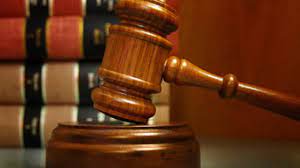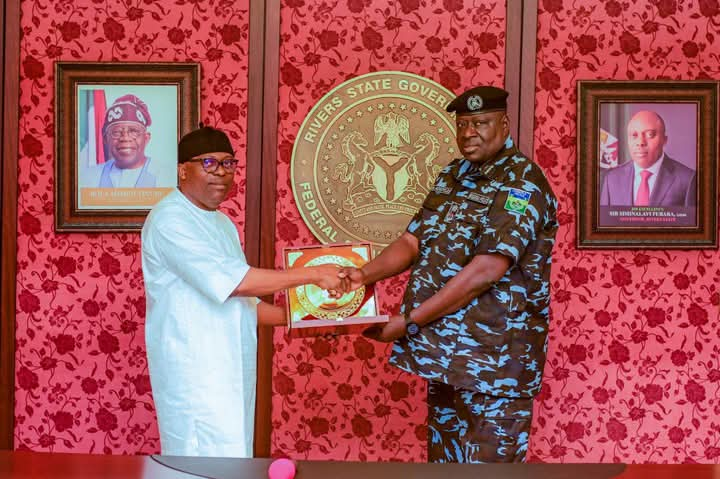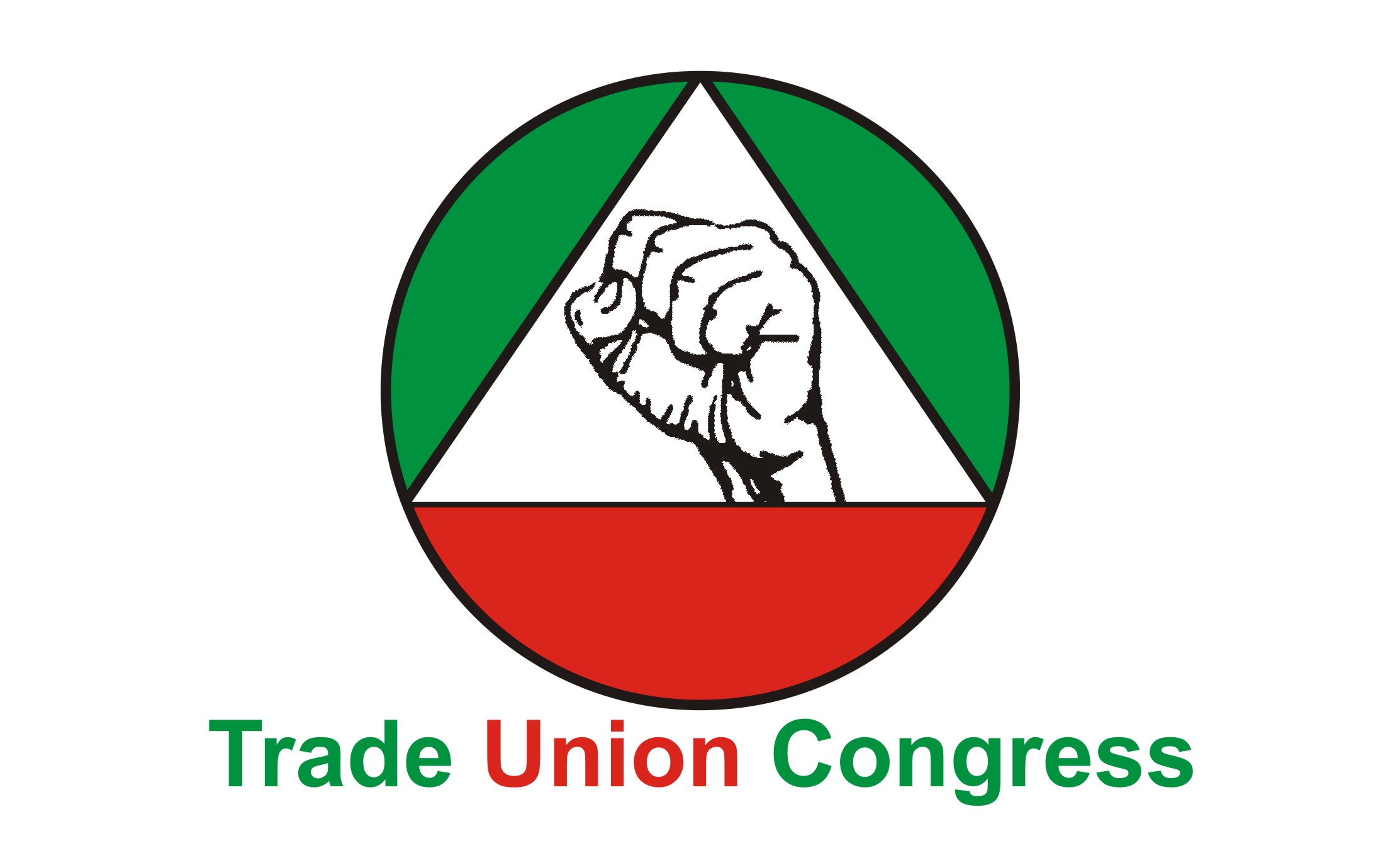News
$418m Paris Club Debt: Again, Court Stops FG From Deducting States’ Funds

A Federal High Court in Abuja, yesterday, refused to vacate its order restraining the Federal Government from deducting monies accruing to the 36 states from Federation Account to settle $418 million judgement debt in relation to Paris Club Refund.
Justice Inyang Ekwo, who declined to grant the plea by counsel to the defendants in the suit, adjourned the matter until December 13.
Ekwo held that since the order was made based on the plaintiffs’ motion on notice filed before the court, all pending applications would be taken on the next adjourned date.
The judge had, on November 5, made the order after counsel to the 36 state governments (plaintiffs), Jibrin Okutekpa, SAN, moved an ex-parte motion, seeking for an order of interim injunction, restraining the Federal Government from deducting any money accruing or due to all or any of the 36 states of the federation.
The court had also ruled that the restraining order would subsist pending the determination of the substantive suit.
While the 36 states Attorneys-General are the plaintiffs, some of the defendants listed in the suit include the Attorney-General of the Federation (AGF), Accountant General of the Federation and Ministry of Finance.
Others are Central Bank of Nigeria, Debt Management Office, Federation Account Allocation Committee, Incorporated Trustees of Association of Local Government of Nigeria (ALGON), among others.
According to the motion dated and filed October 27, 43 defendants are sued in the matter.
At the resumed hearing, counsel to the plaintiffs, Okutekpa told the court that the matter was slated for hear.
He said he had two motions which he intended to move.
He told the court that though most of the defendants had responded by serving on them various applications, the 9th defendant (Dr Chris Asoluka, who does business under the name and style of NIPAL Consulting Network) had refused to receive their court processes.
“We have a motion ex-parte to serve the 9 defendant an originating process. The process dated December 6 was filed on December 6 and it is praying for an order of substituted service on the 9th defendant,” he said.
The judge then granted prayer one of the motion and ordered that the service be made on the 9th defendant within three days through pasting of the notice on his address.
The senior lawyer told the court that the second motion was an application praying the court for an extension of time to file and serve their counter affidavit and all other processes in response to the defendants’ applications.
Ekwo also granted prayer one of the motion and granted prayer two in part subject to the service of the motion on the two counsels who appeared for 15th, 16th, 10th and 11th defendants.
The two counsels had opposed the motion on the ground that they had not been served with the copy.
Okutekpa then asked for a date for hearing.
However, Oyin Koleoso, who appeared for the 1st, 2nd, 4th and 6th defendants (President of Nigeria, AGF, Ministry of Finance Incorporated and Debt Management Office), informed the court that a motion asking the court to vacate the earlier order made had been filed.
Wole Olanipekun, SAN, who appeared for the 14th defendant (Dr Ted Iseghohi-Edwards), also urged the court to set aside the order.
He argued that he made the plea based on the Supreme Court and Appeal Court decisions under which the judge took the application.
Olusola Oke, SAN, who is lawyer to 12th and 13th defendants (Riok Nigeria Ltd and Prince Nicholas Ukachukwu), also supported Olanipekun’s submission.
Oke, who told the court that his clients were affected by the order, urged the court to take their application seeking for the order to be vacated.
Orji Orizu, who appeared for himself in the suit as 18th defendant, backed Oke’s statement.
He argued that since an ex-parte motion lasts within 14 days, the lawyer prayed the court to discharge the order.
“That is what we are here for. A motion ex-parte is something done without the presence of the other parties and it Is the first thing the court ought to do before adjournment,” he added.
Idumodin Ogumu, who represented 15th and 16th defendants (Panic Alert Security Services Systems Ltd and Dr George Uboh), said he aligned himself with submissions of other counsel.
He argued that based on the rule of the court, the order granted by the court was deemed to have elapsed and no longer had effect.
However, counsel to the plaintiffs, Okutekpa, disagreed with the defence submission.
He referred the court to the order which its made.
The senior lawyer argued that it was an order of interim injunction restraining the Federal Government, acting through its agencies also joined in the suit, from deducting the plaintiffs’ monies pending the determination of the motion on notice.
He said the order was also made in compliance with the rule of the court.
“Your Lordship was aware of the rule when you were making the order.
“What I am saying now is that all we are doing now is a nullity because I am yet to serve the 9th defendant.
“This is not an application that your lordship should hurriedly take. Let other defendants be here so that it will not be taken piecemeal,” he enjoined.
After taking all the arguments, Ekwo noted that the restraining order was made subject to the motion on notice filed by the plaintiffs.
News
Don’t Attend Nocturnal Meetings To Declare War On Rivers, Fubara Tells New CP

Rivers State Governor, Sir Siminalayi Fubara, has advised the new Commissioner of Police posted to the State, Olugbenga Adepoju, to resist the temptation of attending nocturnal meetings that will make him declare war on Rivers people.
Rather, the Governor urged him to put the general interest of the people of the State above other considerations so that he can work to ensure that peace prevailed and there is stability.
Governor Fubara gave the advice when he received CP Olugbenga Adepoju, the 47th Commissioner of Police, Rivers State Command, on courtesy visit, at Government House in Port Harcourt, last Friday.
The Governor said: “You are not a new person in our State. You’ve been here, more especially, in charge of Operations. It then means if I start to talk about my story, it’ll connect with your activities in Operations. But I am not going to talk about my story.
“But the good thing here is, you said something that I want to really anchor on. Your duty, as it stands now, is to work with the government, work with other sister agencies to maintain law and order, protect lives and property of the people of Rivers State.
“Be apolitical, as you just read in your address. Don’t go to nocturnal meetings in people’s houses, and in the morning, you come and declare war on Rivers people. That is the only advice I will give to you.”
Governor Fubara charged the CP, who is already conversant with the Rivers State terrain and its associated security challenges, to draw up a holistic plan on how to tackle the twin problem of cultism among the youths and kidnapping incidences in boundary communities.
Governor Fubara said his administration is not failing on its responsibilities to security agencies to sufficiently address those issues and save Rivers people, adding, “But the primary duty of this team, these particular challenges are rested on the police. So, please, take this one as my own assignment (to you).
“While you are carrying out the larger assignment that your people from headquarters will send you, also make sure that you look for every way possible to reduce issues of cultism because it is affecting our secondary schools, it is affecting our primary schools with students growing to become monsters, which is also leading to other issues like kidnapping and others.
“It starts from somewhere. So, we must also get to the root and reduce it. I know we cannot totally eliminate it, but, somehow, let us look for a way to reduce it.”
Governor Fubara said the former CP to the State had succeeded because he maintained healthy synergy with the State Government, and assured that the same level of support will be provided to the new CP, if he adheres to the tenets of professionalism, stressing, “On our part as a Government, we will continue to support you to make sure you succeed. Your success here will mean more elevation for you. If you have a very bad record here, whether you like it or not, it will one day in the course of your profession, affect your growth.”
In his address, Rivers State Commissioner of Police, CP Olugbenga Adepoju, expressed profound gratitude for the opportunity given to him to serve the resilient and vibrant people of Rivers State as the 47th Commissioner of Police.
CP Adepoju said he is fully aware of the complex security challenges in the State, and is determined to do everything professionally to confront them with innovation.
He said, “We will strengthen our intelligence gathering capabilities, enhance our rapid response mechanism, and most importantly, foster deeper trust and collaboration with the community we serve. Our Command will remain firmly apolitical, standing as a neutral and impartial institution, dedicated solely to upholding law and order. This commitment is vital to maintaining the trust and confidence of the people we protect.”
CP Adepoju also said: “While we will engage constructively with political leaders and key stakeholders to secure necessary resources and support, our engagement will always be conducted with professionalism and integrity”.
Meanwhile, Governor Siminalayi Fubara, and the State Commissioner of Police, Olugbenga Adepoju, have decorated two officers in Government House with their new ranks of Deputy Superintendent of Police (DSP).
They include the Personal Security Officer to the Governor, Anthony Peter, who was recently promoted from Assistant Superintendent of Police (ASP 1) to Deputy Superintendent of Police (DSP); and Provost Marshal, Government House, John Wakama, who was also promoted from Assistant Superintendent of Police (ASP 1) to Deputy Superintendent of Police (DSP).
Both the Governor and the Commissioner of Police were assisted at the short event by the wives of the newly promoted officers.
The decoration ceremony was performed shortly after the courtesy visit to the Governor by the State Commissioner of Police at the Government House, Port Harcourt, last Friday.
News
TUC Rejects VAT Hike, Urges Pro-people Tax Reforms

The Trade Union Congress of Nigeria has opposed the proposed increase in the Value Added Tax rate, as outlined in the Federal Government’s Tax Reform Bills, warning that the move could worsen the economic hardship faced by Nigerians.
The Federal Government had proposed a phased VAT hike from the current 7.5% to 10%, 12.5%, and ultimately 15%, a move the TUC described as ill-timed and detrimental to the welfare of citizens already grappling with inflation, unemployment, and a soaring cost of living.
Speaking during a press briefing in Abuja, yesterday, following the union’s National Executive Council meeting held on November 26, 2024, TUC President Festus Osifo said maintaining the VAT rate at 7.5 per cent was crucial to safeguarding Nigerians from additional financial pressure.
“Allowing the Value Added Tax rate to remain at 7.5 per cent is in the best interest of the nation. Increasing it now would impose an additional burden on households and businesses already struggling with economic challenges,” Osifo said.
He added, “With inflation, unemployment, and the cost of living on the rise, higher taxes could stifle economic growth and erode consumer purchasing power.”
The TUC called for a review of the tax exemption threshold, urging the government to raise it from N800,000 to N2.5 million per annum to ease the financial strain on low-income earners.
“This measure would increase disposable income, stimulate economic activity, and provide relief to struggling Nigerians,” Osifo explained.
He said, “The threshold for tax exemptions should be increased to N2,500,000 per annum. This adjustment would offer much-needed relief to low-income earners, enabling them to cope with the current economic challenges.”
The TUC also expressed reservations about the proposed transfer of royalty collection from the Nigerian Upstream Petroleum Regulatory Commission to the Nigeria Revenue Service (NRS), citing risks of revenue losses and inefficiencies.
“Royalty determination and reconciliation require specialised technical expertise in oil and gas operations, which the NUPRC possesses but the NRS lacks. This shift could result in inaccurate assessments, enforcement challenges, and reduced investor confidence,” Osifo warned.
The union commended the government’s decision to retain the Tertiary Education Trust Fund and the National Agency for Science and Engineering Infrastructure, describing their roles as pivotal to the country’s education and technological advancement.
“These institutions have significantly contributed to improving tertiary education and fostering homegrown technologies. Their continued existence is vital for sustained progress in education, technology, and national development,” Osifo said.
Osifo called on the Federal Government to adopt tax policies that prioritise the welfare of citizens and promote equitable economic growth.
“As discussions on the Tax Reform Bill continue, it is our hope that the focus will remain on fostering economic growth and improving living conditions for all Nigerians,” he said.
The TUC reaffirmed its commitment to advocating for policies that enhance the well-being of Nigerians, emphasising that proactive and citizen-centred reforms reflect true leadership.
News
Fubara Inaugurates Road Project To Celebrate Jackrich On Birthday

Rivers State Governor, Sir Siminalayi Fubara, has noted with delight the initiative, love and courage shown by High Chief Sobomabo Jackrich in contributing to improved road infrastructure in his community.
Governor Fubara made the commendation when he visited the country home of Amb Sobomabo Jackrich to celebrate with him on his birthday, and used the occasion to inaugurate a road project executed by the celebrant in Usokun Town in Degema Local Government Area.
Amb Sobomabo Jackrich, also known as Egberepapa, is a prominent Niger Delta leader and National Chairman of Simplicity Movement.
Governor Fubara said the road project, solely funded and completed by the celebrant, shows how committed he is to making life better for residents in his community.
The Governor said: “Let me on behalf of the guests that are here to celebrate with our brother, not really an official engagement, but on a personal note, also share a wonderful moment with our people.
“Our celebrant is not just celebrating his birthday, but he is also giving back to the society. So, I join him and all well-meaning people that believe in his course to commission this project that he has embarked on in his own accord for the betterment of his people.
“I want to say that with what I am seeing here, there may be a few things that we can also do to make this project more meaningful to the people in terms of streetlights. On our own, we are going to support him to complete it.”
Governor Fubara, who also joined the celebrant to cut the birthday cake, prayed for strength and longevity for the celebrant.



